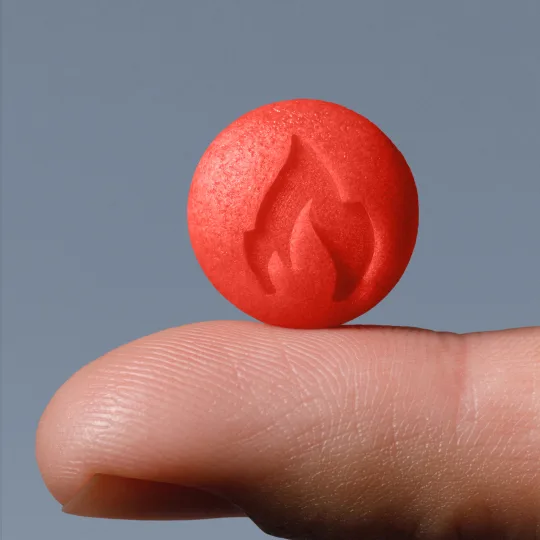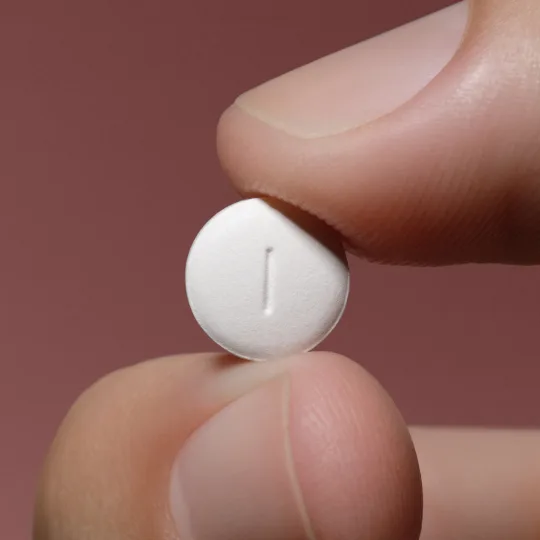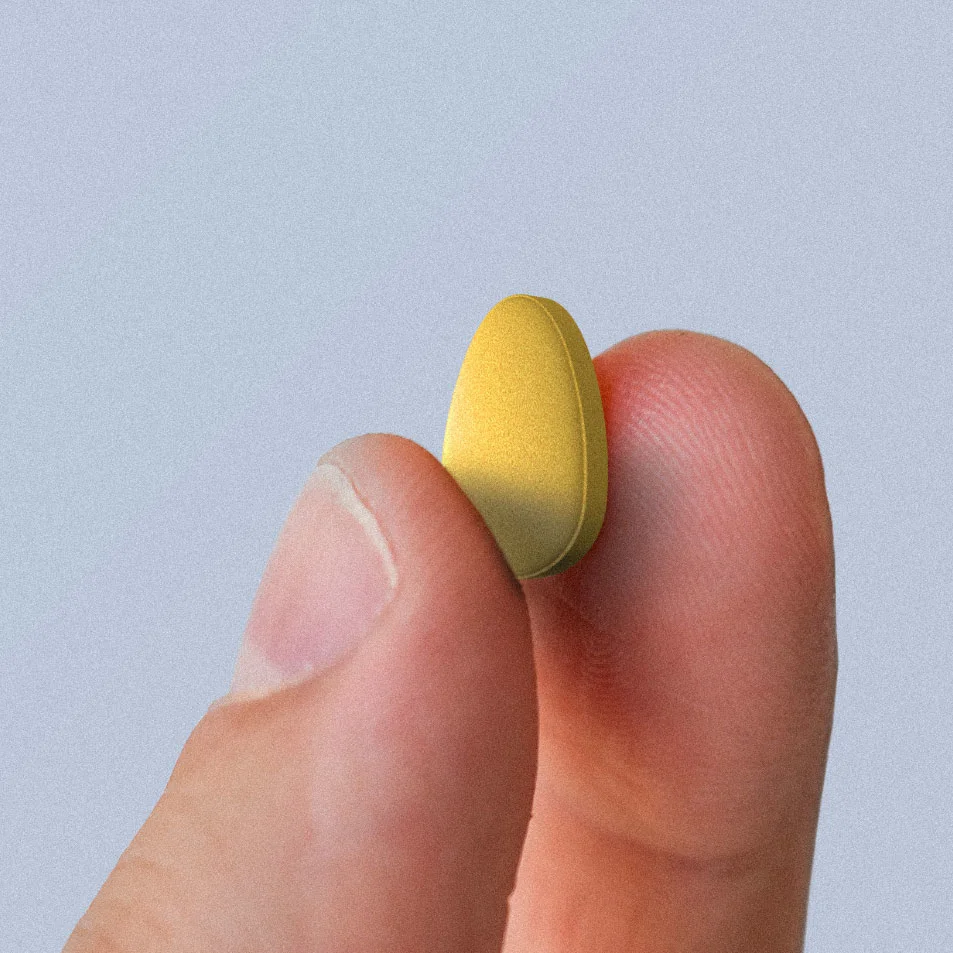Key takeaways
Viagra (sildenafil) is a safe and effective treatment for erectile dysfunction (ED) when taken as prescribed by a healthcare provider.
The medication is typically taken as needed, with at least 24 hours between doses, and it comes in strengths of 25 mg, 50 mg, and 100 mg.
Combining Viagra with nitrates, certain alpha-blockers, or specific antifungal and HIV medications can be harmful and should be avoided or very closely monitored by a healthcare provider.
Common side effects of Viagra include headaches, facial flushing, nasal congestion, and upset stomach. These symptoms are usually mild and temporary. Serious side effects are also possible, but are far less common.
Here's what we'll cover
Here's what we'll cover
Key takeaways
Viagra (sildenafil) is a safe and effective treatment for erectile dysfunction (ED) when taken as prescribed by a healthcare provider.
The medication is typically taken as needed, with at least 24 hours between doses, and it comes in strengths of 25 mg, 50 mg, and 100 mg.
Combining Viagra with nitrates, certain alpha-blockers, or specific antifungal and HIV medications can be harmful and should be avoided or very closely monitored by a healthcare provider.
Common side effects of Viagra include headaches, facial flushing, nasal congestion, and upset stomach. These symptoms are usually mild and temporary. Serious side effects are also possible, but are far less common.
If you have erectile dysfunction (ED) or suspect you may have ED, you probably already know about Viagra (sildenafil). It’s one of the most well-known and widely used medications for this condition, and it has a long history as a safe and effective treatment for ED when used as directed by a healthcare provider.
In this article, we’ll address some of the most common questions about Viagra, such as: Is Viagra safe to take? Are there any side effects with Viagra?
Whether you’re new to ED treatment or considering Viagra for the first time and wondering whether Viagra is safe, we’ll provide the information you need to make an informed decision.
Is Viagra (sildenafil) safe?
When taken as prescribed by your healthcare provider, Viagra is usually a safe and effective treatment for ED. The FDA approved Viagra in 1998 after thorough research and clinical trials proved its safety and effectiveness.
Viagra can help blood flow more freely to your penis during sexual stimulation. It relaxes the blood vessels, which can make it easier to get and maintain an erection.
The active ingredient, sildenafil, belongs to a family of medications called PDE5 inhibitors that help alter blood flow to promote erections .
Major clinical studies have shown that most people tolerate Viagra well. In fact, in research involving thousands of patients, the number of people who stopped taking Viagra due to side effects was very similar to those who stopped taking a sugar pill (placebo) – around 2.5%.
Most people can take Viagra without experiencing significant problems – so no, Viagra isn’t dangerous. Of course, like any prescription medication, it may not be safe for everyone and it's important to take Viagra exactly as your healthcare provider recommends.
Who should avoid taking Viagra?
Viagra may not be suitable for everyone. While most people can use this medication safely, certain medical conditions and medications can increase the risk of complications, making it important to consult with your healthcare provider.
Here’s a quick look at some groups of people who should avoid Viagra or take it at a low dose with very close monitoring by a healthcare provider:
People with recent heart problems
Viagra can lower blood pressure, so if you have serious heart conditions or take heart medications like nitrates, it may be unsafe. You should not take Viagra if you've had a heart attack, stroke, or serious heart rhythm problems in the last 6 months.
Your doctor may also tell you to avoid Viagra if you get chest pain during physical activity or sex, or if your blood pressure is either too high or too low. Since sexual activity puts extra strain on your heart, Viagra may increase these risks.
People with certain medical conditions
Some health conditions make taking Viagra more risky.
If you have retinitis pigmentosa (a rare inherited eye disease) or have previously lost vision due to an eye condition called NAION, Viagra may not be safe for you.
People with severe kidney or liver problems requiring dialysis may need a lower dose of Viagra, or you may need to avoid it.
Blood disorders like sickle cell anemia, leukemia, or multiple myeloma can increase your risk of priapism – a painful, prolonged erection that can cause permanent damage.
Peyronie's disease is a condition where scar tissue inside the penis causes it to bend, which can lead to pain during erections. For people with this condition, taking Viagra may worsen discomfort or increase the chance of complications.
People taking certain medications
Several medications can interact dangerously with Viagra. The most serious risk comes from combining Viagra with nitrates – medications used for chest pain (angina) or as recreational drugs called "poppers."
This combination of medications can cause a dangerous drop in blood pressure. Even if you only use nitrates occasionally, you cannot safely take Viagra.
In addition to nitrates, certain HIV medications like ritonavir, alpha-blockers used for prostate problems or blood pressure control may also be unsafe when taken with Viagra.
Your healthcare provider needs to know about all medications you take, including over-the-counter drugs and supplements, to determine if Viagra is safe for you.
Always have an open conversation with your healthcare provider about your complete medical history before starting Viagra. They can evaluate whether it's safe for you or if you need to consider alternative treatments.
Other medications, such as Daily Rise Gummies, Cialis, Vardenafil, Avanafil, or even local injections may work better for you.
People who are allergic to Viagra
Although it’s rare, Viagra can cause hypersensitivity reactions, including rashes or more severe skin conditions. These reactions aren’t commonly reported, however.
If you experience any unusual skin reactions or other symptoms after taking Viagra, stop using the medication and consult a healthcare provider immediately.
What are the side effects of Viagra?
Like any prescription medication, Viagra can cause some side effects. While most are mild and temporary, it always helps to know what to expect and when you should get medical help.
Common side effects
Most common side effects are mild and usually resolve within a few hours. These include:
Headaches
Facial flushing (warmth or redness in your face)
Upset stomach or indigestion
Stuffy or runny nose
Back pain
Muscle aches
Dizziness
Changes in vision, such as seeing a blue tinge or increased light sensitivity
Rash
These effects tend to be more noticeable with higher doses. If they bother you or don't go away, your healthcare provider may be able to adjust your dose while keeping the medication effective.
Since these effects can vary from person to person, it’s important to try different options and figure out the one that works best for you by continuing to discuss with your healthcare provider.
Rare side effects
While rare, some side effects need urgent medical care. You should stop taking Viagra and get medical help if you experience:
A painful erection lasting longer than 4 hours, called priapism, which can cause damage to the penis if not treated immediately
Sudden vision decrease or loss in one or both eyes
Sudden hearing decrease or loss, which may come with ringing in your ears or dizziness
Chest pain, dizziness, or nausea during sexual activity
For further information on severe side effects, check Viagra’s FDA label or discuss with your healthcare provider. If in doubt, seek immediate medical attention.
Viagra itself can lower blood pressure, so if you already have low blood pressure or take medication for high blood pressure, you should discuss this with your healthcare provider before using Viagra.
Sexual activity can strain your heart and may not be safe if you have a history of heart conditions or heart disease. Before taking Viagra, be sure that you have been cleared for sexual activity. If Viagra is right for you, your healthcare provider may suggest checking your blood pressure regularly or adjusting your dosage if necessary.
How can you reduce the side effects of Viagra?
Most mild side effects from Viagra go away on their own within a few hours, but there are a few steps you can take to minimize discomfort while the medication is active in your body.
Have a light meal: It’s a good idea to avoid taking Viagra on an empty stomach. Viagra may cause indigestion (dyspepsia), so it can help to have a light meal instead of a high-fat meal. A heavy meal can also delay how quickly Viagra works.
Be mindful of alcohol consumption: If you plan to drink alcohol while taking Viagra, moderation is key. While moderate drinking (1-2 standard drinks a day) is usually fine, alcohol can increase your chances of getting dizzy or experiencing a drop in blood pressure or blood sugar levels. Heavy drinking (typically considered 15 drinks per week for men or more) is likely to increase your risk of side effects. A study of 325 men found that combining Viagra with alcohol increased the likelihood of side effects such as headaches, facial flushing, chest discomfort, and dizziness.
Avoid OTC alternatives: Make sure you avoid over-the-counter (OTC) alternatives marketed as Viagra substitutes. These products could include harmful or unknown substances. Stick to FDA-approved medications prescribed by a licensed healthcare provider.
Try to manage mild symptoms: Some mild symptoms may be fairly easy to manage at home. For example, for facial flushing, a cool compress can help reduce the warmth and redness. If you're dealing with nasal congestion, try sleeping with your head slightly elevated or using a saline nasal spray.
Talk to your healthcare provider if side effects persist or bother you. They might be able to adjust your dose to find the lowest effective amount, change when you take the medication, or switch you to a different ED medication that might work better for you.
How do you use Viagra for best results?
Many factors can influence how your body responds to the medication, and small adjustments like the following tips can often make a big difference:
Time it right: For the best results, take Viagra 30 minutes to four hours before sexual activity. Timing is key—taking it too early or too late might affect how well it works. Some people find it’s helpful to try the medication once on their own to see how the effects are on their body in a low-pressure environment.
Make sure you’re sexually stimulated: Viagra helps enhance your body’s natural response to sexual stimulation, but it doesn’t work without arousal. Make sure you’re in the right mood and setting for the medication to work effectively.
If you’ve made these adjustments and still aren’t getting the results you want, talk to your healthcare provider. They may recommend adjusting your dose or exploring other treatment options that better suit your needs.
What medications can't be taken with Viagra?
Like many medications, Viagra may interact with certain medications.
Here are the key Viagra drug interactions you should beware of:
Nitrates
Viagra isn't safe to use alongside nitrate medications for chest pain (angina) or recreational drugs called "poppers."
This includes medications like nitroglycerin (Nitrostat), isosorbide mononitrate, and isosorbide dinitrate. When combined, these medications may cause dangerous drops in blood pressure, whether you take nitrates regularly or occasionally.
Alpha-blockers
If you take alpha-blockers for blood pressure or prostate problems (like doxazosin, terazosin, or tamsulosin), your healthcare provider will take special precautions. These medications may interact with Viagra and cause a further drop in blood pressure.
Your provider may start with a lower dose of Viagra (25 mg) and monitor how you respond. If your blood pressure runs low due to these medications, your provider may avoid prescribing Viagra entirely, which is purely for your safety.
HIV/AIDS medications
Certain HIV medications, particularly ritonavir, can dramatically increase Viagra levels in your body because it impacts how the drug is metabolized.
If you take these medications, your healthcare provider will likely prescribe a lower dose of Viagra (25 mg) and recommend not taking it more than once every 48 hours.
Antifungal medications
Strong antifungal medications like ketoconazole or itraconazole can also increase the levels of Viagra in your blood. Your healthcare provider may start you on a lower dose of Viagra if you take these medications.
Remember that this list is by no means exhaustive––you should share all the medications you are taking with your healthcare provider, including over-the-counter drugs, supplements, and recreational substances.
This helps ensure you can take Viagra safely and effectively while avoiding dangerous interactions.
Can you take Viagra with alcohol?
Viagra and alcohol can be used together in moderation, though being mindful of your alcohol intake can help minimize potential side effects. Here's what research and clinical studies tell us about using Viagra with alcohol:
According to clinical studies, moderate alcohol consumption (1–2 drinks) typically doesn't cause problems when taking Viagra. The medication was specifically tested at a dosage of 50 mg with alcohol levels up to 0.08% blood alcohol content (equivalent to about 3–4 drinks for most men) and did not contribute to low blood pressure.
However, research shows that those who drink heavily (more than 15 drinks per week) while using Viagra report more side effects compared to those who drink moderately or not at all.
Heavy drinkers experienced more headaches (23.6% vs. 7.3%) and facial flushing (69.6% vs. 12.4%) than those who drank less.
It’s also better to be safe than sorry, and just because one study did not find an increased risk of low blood pressure when combining alcohol and Viagra doesn’t mean it can’t happen to you.
If you plan to drink alcohol while using Viagra, consider these tips:
Stay within moderate drinking limits
Stay hydrated with non-alcoholic beverages
Consider limiting alcohol on days you plan to take Viagra
It’s also important to note that how alcohol affects you when taking Viagra can vary based on individual factors like your metabolism and whether you’ve eaten recently.
Your healthcare provider can give you personalized advice about drinking alcohol while using Viagra based on your medical history and other medications you take.
How often can you safely take Viagra?
Viagra is typically meant to be taken only when needed. Your healthcare provider will prescribe a dose that’s best suited to your needs, typically starting with 50 mg, though they may prescribe different starting doses based on individualized factors, such as age or other medications. Adjustments may be made based on how your body responds.
The medication comes in three strengths—25 mg, 50 mg, and 100 mg—and should always be used as prescribed.
Regardless of the dose, Viagra should never be taken more than once in a 24-hour period. Using it more often can increase the risk of side effects, such as headaches, dizziness, or low blood pressure. If you accidentally take too much, seek emergency medical attention. .
For best results, take Viagra about 30 minutes to four hours before sexual activity. If you miss your timing window or don't get the desired effect, you must wait 24 hours before taking another dose. This is true regardless of whether the medication worked or not.
Understanding potential Viagra dangers is key to using this medication safely and effectively.
Is it safe to take Viagra every day?
Viagra can be taken as often as once a day, but this approach is less common and usually reserved for specific cases under a healthcare provider’s guidance.
Most people are advised to take it only as needed, with at least 24 hours between doses. Overusing Viagra or taking it recreationally can increase the likelihood of unwanted side effects.
If you find yourself wanting to have sex more often, or you feel like Viagra’s effects don’t last long enough, or if you’re wondering how safe it is to take Viagra daily, then it might be worth exploring daily ED medication options.
Daily-use ED medications can allow for more consistent results without the need to plan around individual doses.
Ro offers a range of daily ED medications designed to provide steady support for erectile function.
Daily Rise Gummies: These gummies contain 7 mg of tadalafil (the active ingredient in Cialis) and are taken once daily. They can provide a low-dose, hassle-free option to improve erectile function without worrying about timing.
Low-dose daily Cialis (tadalafil): Approved for daily use, these lower-dose medications maintain a consistent level of tadalafil in your system, which can give you the flexibility to be ready for sex at any time.
Ro Sparks: This prescription treatment for ED combines lower doses of both medications into one dissolvable medication, designed for faster action and longer-lasting effects. Although this formulation isn’t FDA-approved, it contains active ingredients that have been FDA-approved for erectile dysfunction.
If you’re considering a daily ED medication, talk to your healthcare provider to determine the best option for your lifestyle and needs.
Can you become dependent on Viagra?
Viagra is not considered an addictive medication. It doesn’t contain any ingredients that cause physical dependence or withdrawal symptoms, even if you stop using it suddenly.
Unlike substances that affect the brain’s reward pathways and can lead to physical addiction, Viagra (sildenafil) works by helping to increase blood flow to the penis, which can make it easier to get and maintain an erection during sexual activity.
That said, some people may develop a psychological dependency on Viagra. This typically happens when they become reliant on the medication for the confidence it provides in the bedroom, even if they don’t always need it.
Using Viagra as prescribed by your healthcare provider is the best way to avoid any unwanted effects. Take it only when needed and at the prescribed dose, typically no more than once every 24 hours.
Managing expectations around sexual performance and communicating openly with your partner can also reduce the risk of feeling overly reliant on the medication.
If you’re concerned about developing dependency or have ongoing issues with ED, there are other treatment options to explore, including lifestyle changes, therapy, or daily ED medications.
These alternatives can provide additional support and help address the root causes of ED while minimizing the need for frequent medication use.
Have better sex with Ro
Bottom line: is Viagra safe to take?
Viagra is usually safe to take when used as directed by your healthcare provider. Clinical trials involving thousands of men found Viagra effective, with over 95% of long-term users reporting satisfaction and improved sexual performance.
Side effects are uncommon, and most people can use Viagra without significant concerns about their health or well-being.
To ensure the medication works safely for you, it’s important to follow your healthcare provider’s instructions and share any underlying health conditions or other medications you’re taking.
If you experience any side effects, your provider can help you adjust your dose or explore alternative treatments.
The best way to ensure it’s safe is close communication with your healthcare provider. Be sure that you have been cleared for sexual activity and let your provider know about any changes in your other medications so you can avoid unwanted interactions. .
If you’re interested in trying Viagra or its generic form, sildenafil, Ro offers a convenient way to access FDA-approved ED medications online. After a convenient online consultation with a licensed medical provider, you can get a prescription and have your medication delivered discreetly to your door if you qualify.
Frequently asked questions (FAQs)
Does tinnitus from Viagra go away?
Yes, tinnitus from Viagra can be resolved on its own. Tinnitus, or ringing in the ears, has been reported as a rare side effect of Viagra (sildenafil) and other PDE5 inhibitors.
In some cases, tinnitus has been associated with a sudden decrease or loss of hearing. While the exact cause is unclear, these events may occur due to the medication’s effect on blood flow which can lead to pressure and fluid imbalances in the inner ear, which is very sensitive.
If tinnitus occurs after taking Viagra, it’s important to stop using the medication and get prompt medical attention. Most cases of drug-related tinnitus are temporary and resolve once the medication is discontinued, as seen in reports where symptoms disappear within 24 hours.
However, because hearing-related side effects are rare but potentially serious, always seek emergency medical attention if you experience any changes in hearing after taking Viagra and let all of your healthcare providers know.
Is generic Viagra safe?
Yes, generic Viagra, also known as sildenafil, is just as safe as brand name Viagra when prescribed by a licensed healthcare provider and purchased from a reputable source. Generic medications are FDA-approved, meaning they meet the same safety and quality standards as the brand-name version.
However, like brand-name Viagra, generic Viagra can have side effects, and it may not be safe for everyone. Always follow your healthcare provider’s instructions and discuss any medical conditions or medications you’re taking to ensure it’s the right option for you.
Is Viagra healthy?
When used as prescribed, Viagra is generally considered safe and effective for treating ED. It can improve blood flow to the penis, helping to achieve and maintain erections. Because it’s an FDA-approved medication, it has also been extensively studied in clinical trials.
For most people, it can produce noticeable benefits with minimal risks. Common side effects include headaches, flushing, nasal congestion, and mild visual changes, which are usually temporary and resolve on their own.
However, Viagra may not be safe for everyone. While uncommon, there is a possibility for more serious side effects including low blood pressure and priapism (or an erection lasting longer than 4 hours, which is a medical emergency). It can interact with certain medications, such as nitrates, and it may not be suitable for people with specific health conditions, including severe heart or liver problems.
Before taking Viagra, it’s essential to discuss your medical history with your healthcare provider to determine whether it’s a good option for you. Used responsibly under medical supervision, Viagra can be a safe way to improve sexual function and quality of life for many individuals.
Is it bad to take Viagra without ED?
Using Viagra without erectile dysfunction is generally not recommended. The medication is specifically designed to address the issues that cause ED, such as reduced blood flow to the penis.
For those without ED, taking Viagra can unnecessarily expose them to side effects, including headaches, flushing, nasal congestion, and dizziness, without providing meaningful benefits.
It's also worth mentioning that you can’t legally obtain genuine Viagra without a prescription. Taking Viagra without a prescription increases the risk of improper dosing, harmful interactions with other medications, and overlooking underlying health conditions.
Additionally, buying Viagra from unverified sources online can lead to buying counterfeit or knock-off products that may contain harmful ingredients and lack the safety and effectiveness of FDA-approved medication.
If you’re experiencing concerns with sexual performance or are curious about Viagra, consult a healthcare provider to explore safe and appropriate options tailored to your needs.
Is it safe to buy Viagra online?
It can be safe to buy Viagra online, but only if you’re using a trusted and licensed source. Look for online pharmacies or telehealth platforms that require a prescription from a licensed healthcare provider.
This ensures you’re getting genuine, FDA-approved medication and not counterfeit products, which can be dangerous.
Be cautious of websites that sell Viagra without requiring a prescription or offer prices that seem too good to be true—they may not be legitimate. Platforms like Ro can connect you with licensed providers for a safe and convenient way to get Viagra delivered to your door.
DISCLAIMER
If you have any medical questions or concerns, please talk to your healthcare provider. The articles on Health Guide are underpinned by peer-reviewed research and information drawn from medical societies and governmental agencies. However, they are not a substitute for professional medical advice, diagnosis, or treatment.
Viagra Important Safety Information: Read more about serious warnings and safety info.
Cialis Important Safety Information: Read more about serious warnings and safety info.
Carson, C. C., Burnett, A. L., Levine, et al. (2002). The efficacy of sildenafil citrate (Viagra) in clinical populations: an update. Urology, 60(2 Suppl 2), 12–27. doi: 10.1016/s0090-4295(02)01687-4. Retrieved from https://pubmed.ncbi.nlm.nih.gov/12414330/
Dhaliwal, A. & Gupta, M. (2023). PDE5 inhibitors. StatPearls. Retrieved from https://www.ncbi.nlm.nih.gov/books/NBK549843/
Gupta, S. K., Sushantika, S., & Abdelmaksoud, A. (2020). Sildenafil-induced hypersensitivity syndrome/drug reaction with eosinophilia and systemic symptoms: Case report with review. Dermatologic Therapy. doi: 10.1111/dth.13826. Retrieved from https://onlinelibrary.wiley.com/doi/10.1111/dth.13826
Hamzavi, J., Schmetterer, L., & Formanek, M. (2002). Vestibular symptoms as a complication of sildenafil: a case report. Wiener klinische Wochenschrift, 114(1-2), 54–55. Retrieved from https://pubmed.ncbi.nlm.nih.gov/12407937/
Kim, J. N., Oh, J. J., Park, D. S., et al. (2019). Influence of Alcohol on Phosphodiesterase 5 inhibitors Use in Middle- to Old-Aged Men: A Comparative Study of Adverse Events. Sexual Medicine, 7(4), 425–432. doi: 10.1016/j.esxm.2019.07.004. Retrieved from https://pubmed.ncbi.nlm.nih.gov/31444051/
Morales, A., Gingell, C., Collins, M., et al. (1998). Clinical safety of oral sildenafil citrate (VIAGRA) in the treatment of erectile dysfunction. International Journal of Impotence Research, 10(2), 69–73; discussion 73–4. Retrieved from https://pubmed.ncbi.nlm.nih.gov/9647940/
U.S. Food and Drug Administration (FDA). (2017). Highlights of prescribing information: Viagra (sildenafil citrate) tablets, for oral use. Retrieved from https://www.accessdata.fda.gov/drugsatfda_docs/label/2017/020895s048lbl.pdf
Wanjari, M., & Late, S. (2023). Use of Sildenafil in young adults: A growing health problem. The Pan African Medical Journal, 44, 113. doi: 10.11604/pamj.2023.44.113.39168. Retrieved from https://pmc.ncbi.nlm.nih.gov/articles/PMC10237207/



















